
Front_Office_Operations
.pdf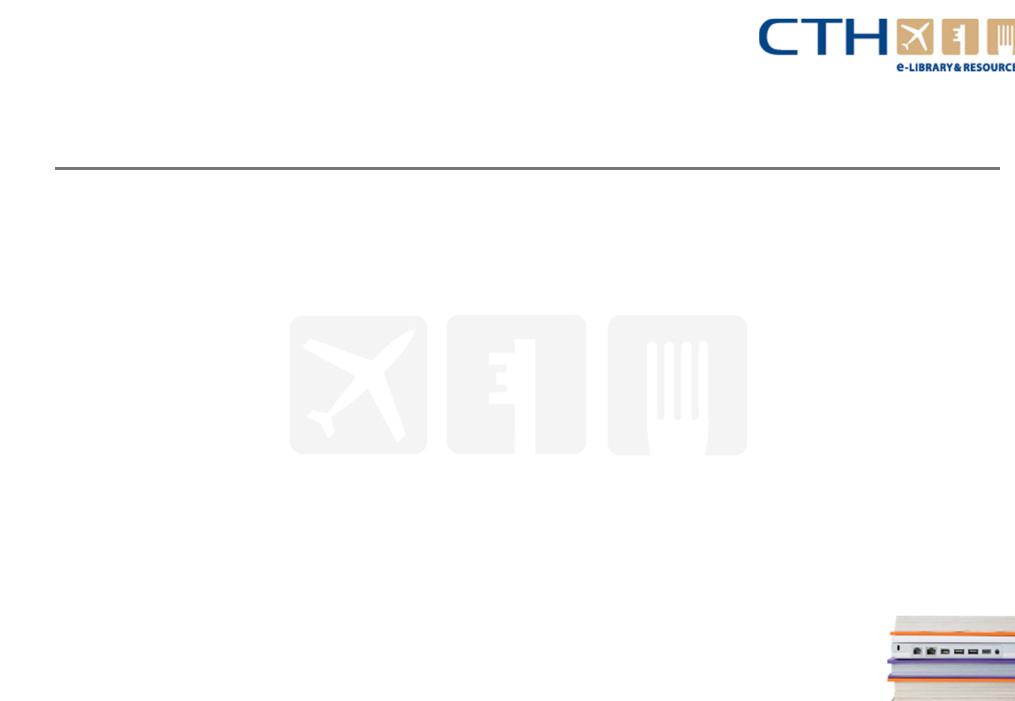
Chapter 4 – Check-out procedures
Payment procedures
3.8 Credit accounts
Tour companies, and businesses paying for their employees' travel, will often find themselves making regular, high-frequency bookings. They may find it inconvenient and costly to pay for each stay separately, and may ask the hotel to set up a credit account.
The hotel will have to carry out checks on the company's reliability and ability to pay (ie its 'creditworthiness‘). Once credit is approved, an account can be opened, and guests can ask for their stays to be billed to the account. The company may supply the hotel with a list of guests/stays to be covered by the account, or may issue travellers with some kind of voucher or corporate purchasing card confirming their authorisation to charge their expenses to the account.
At check-Out, the hotel will record the billed amount in the 'ledger' column of its guest accounts, and transfer the amount to its ledger account. At regular intervals, the hotel can then send the company an invoice or statement of account showing all the transactions charged to the account during that period (With details of guest names and dates of stay and/or copies of itemised bills). The account holder can then pay for the 'batch' of charges with a single cheque, bank transfer or credit card payment.
www.cthresources.com |
Page 251 |
|
www.cthawards.com |

Chapter 4 – Check-out procedures
Payment procedures
3.9 Summary: comparison of methods
|
Method |
Liquidity |
Security |
Worth |
|
|
|
Little payment risk to hotel (unless counterfeit), but |
|
|
Cash |
Immediate |
high risk of theft |
100% |
|
|
|
Little payment risk to hote! (unless counterfeit: added |
|
|
Foreign |
I day |
risk of unfamiliar design), but high risk of theft |
102 -104 % |
|
|
|
Payment risk (if forged or not honoured) but low risk |
|
|
Cheque |
3 days |
of theft (worthless to thief) |
98% |
|
Traveller's |
|
Little payment risk to hotel (unless forged), low risk of |
|
|
cheque |
4 days |
theft (worthless to thief) |
98% |
|
|
|
Guarantees payment, but risk of fraud and theft |
|
|
Credit card |
7 days |
(despite blocking measures etc) |
96% |
|
Credit |
|
|
100% (but lost |
|
account |
30 days |
Payment risk to hote! from default, but no security risk |
interest) |
|
|
|
|
89% |
|
Vouchers |
60 days |
Payment risk to hotel from default. but no security risk |
(cornmissionable) |
www.cthresources.com |
|
Page 252 |
|
|
|
|
|
www.cthawards.com |
|

Chapter 4 – Check-out procedures
Payment procedures
3.10 What happens if a guest can't pay the bill or fails to do so?
Credit status checks, payments in advance, guaranteed bookings and interim or staged payments are all designed to minimise the hotel's losses from guests ‘lacking funds to pay their bills at check-out. However, if a guest has 'slipped through the cracks’ and finds - or confesses - that (s)he has insufficient funds to cover the bill, or lacks acceptable means of :payment (perhaps because traveller's cheques have been lost or stolen), the hotel has some options.
●It may retain possession of the guest's luggage and valuables (by a legal principle called the 'right of innkeeper's lien' as security, until the account is settled. After six weeks, if the matter has not been settled, the hotel can legally auction the goods, retain the amount of the bill (plus expenses) and return the balance to the guest
●It may give the guest the opportunity to contact a bank, employer, friend or relative who may be willing to make or guarantee the payment on their behalf.
It is worth noting that a hotel cannot physically restrain a guest from leaving the premises, if (s)he tries to leave without paying; this may constitute an assault.
www.cthresources.com |
Page 253 |
|
www.cthawards.com |

Chapter 4 – Check-out procedures
Payment procedures
3.10 What happens if a guest can't pay the bill or fails to do so? Continued…
Walk-outs, skippers and runners
●Some guests may genuinely forget to pay, or believe they have paid (forgetting the 'extras' bill), or think that someone else in their party has paid or is going to pay. Because of this possibility, the matter should be handled tactfully. Inadvertent walk-outs will probably be embarrassed and willing to rectify their mistake immediately.
●Some guests may opportunistically take advantage of poor hotel security procedures: access the car park without passing reception; honesty systems for notifying reception of mini-bar consumption; failure to confirm that a cheque will clear before the guest leaves; etc.
●Some deliberately and repeatedly 'skip' without paying, and will probably show up on hotel blacklists. The hotel can only maintain its vigilance in such cases. Reception staff may develop a 'sense' about people who are reluctant to provide registration and credit card details, or who have no luggage. Housekeeping may report guests who appear to have removed their luggage from a room the night before check-out.
www.cthresources.com |
Page 254 |
|
www.cthawards.com |
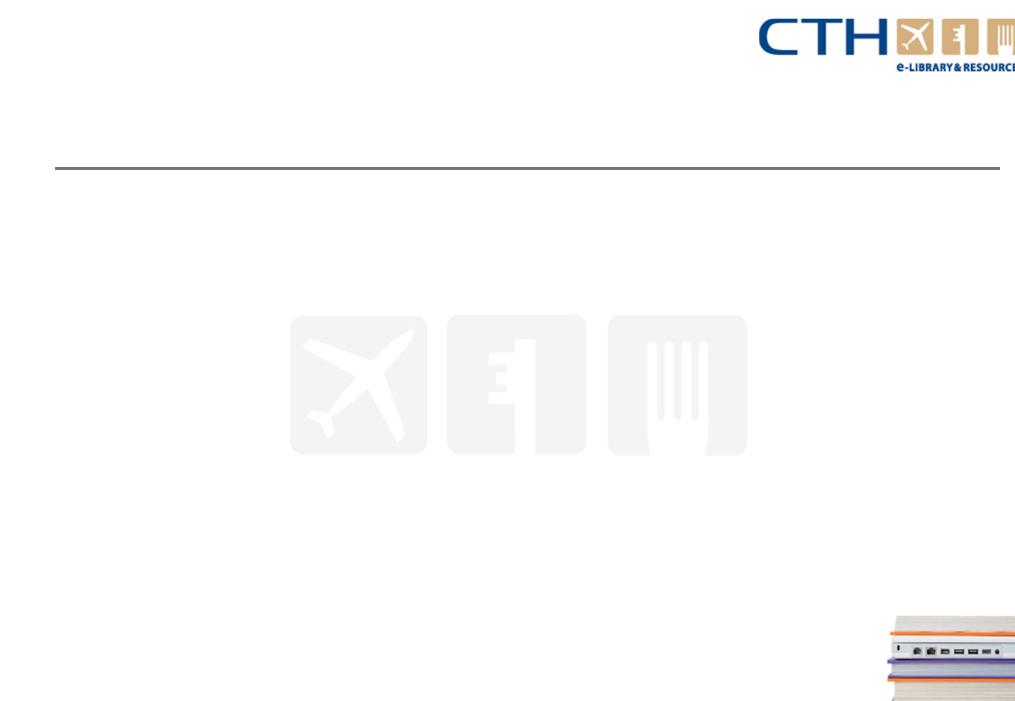
Chapter 4 – Check-out procedures
Payment procedures
3.10 What happens if a guest can't pay the billor fails to do so? Continued…
In the UK, the law (under the Theft Acts and various amendments) provide that:
●'A person who by any deception dishonestly obtains services from another shall be guilty of an offence‘.
●'Any person who, knowing that payment on the spot for any goods supplied or services done is required or expected from him, dishonestly makes off without paying as required and with intent to avoid payment shall be guilty of an offence.'
Unfortunately, if the hotel chooses to take a 'skipper' to court over this matter, its claim may not be as easy to prove. In the UK legal system, you have to prove, beyond reasonable doubt, both that the person did what you allege (i.e. stayed at the hotel and left without paying) but that (s)he intended not to pay, or never to pay. The defendant could claim In court that (s)he intended to pay at some later date...
Abbot& Lewryargue that walk-outs don't really cost the hotel very much (other than the opportunity cost of letting the room and the cost of food and drink consumed), so it may not be worth the
cost and hassle of legal proceedings. But it will certainly worth trying to avoid the scenario.
www.cthresources.com |
Page 255 |
|
www.cthawards.com |
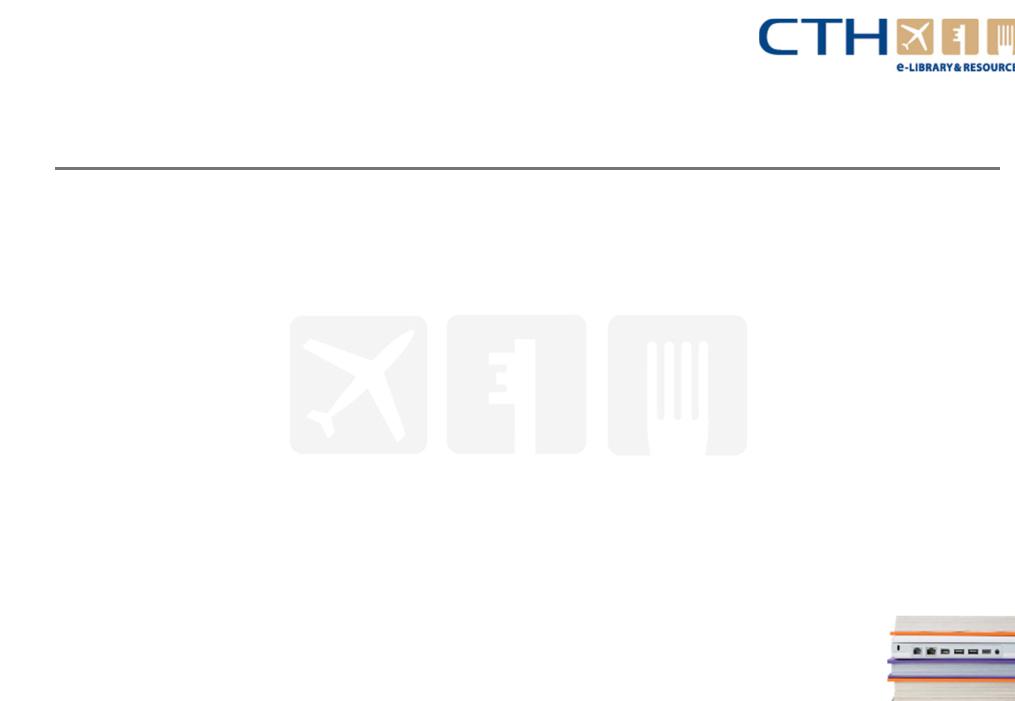
Chapter 4 – Check-out procedures
Other cash transactions
4.Other cash transactions
4.1Petty cash
4.2Visitors paid outs (VPOs) or disbursements
4.3Foreign currency exchange
www.cthresources.com |
Page 256 |
|
www.cthawards.com |
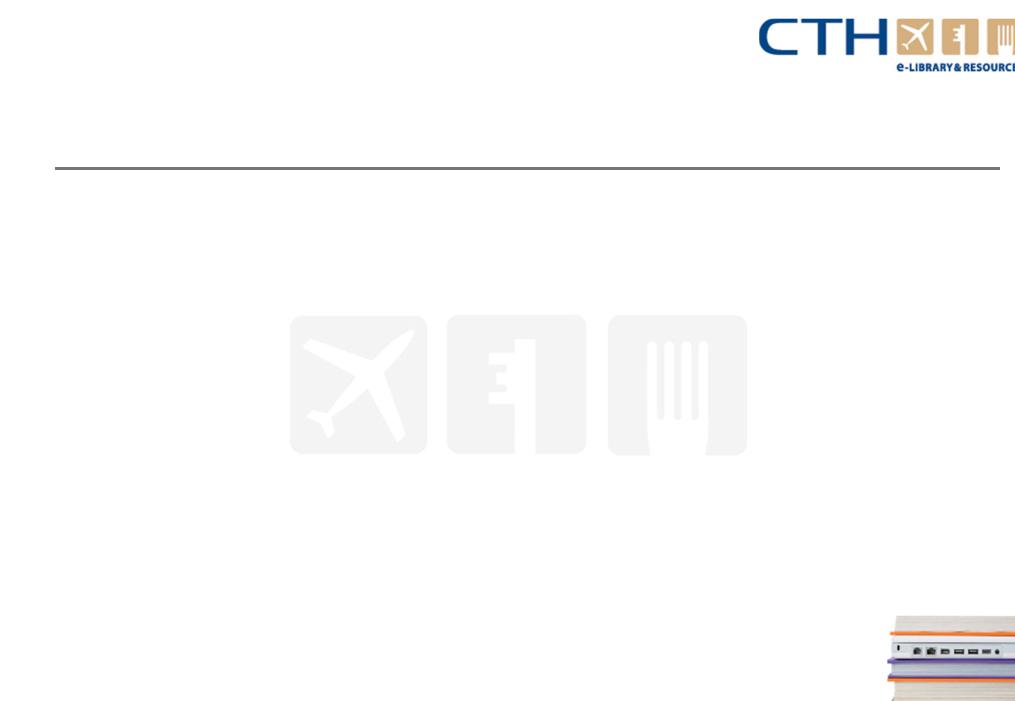
Chapter 4 – Check-out procedures
Other cash transactions
4.1 Petty cash
It is always advisable to have a small amount of cash handy In the cashier's department or reception, in order to make low-value cash purchases that crop up from time to time. The front office may require cash for the payment of casual wages (e.g. window cleaners), or for the 'emergency' purchase of stationery, postage stamps or small items required in the office (or reimbursement of staff who have made these purchases out of their own pockets). It would be costly to require a cheque to be drawn up each time these types of expenses are incurred, so instead a small amount of cash is kept for these purposes, known as a petty cash float.
The most common method for dealing with petty cash is called an imprest system. A certain amount of cash, say £100, is paid into the petty cash box as a starting float. In order to withdraw money from the box, staff have to fill in a petty cash voucher (with a purchase receipt for the same amount attached, where available). The voucher is authorised by a responsible manager, and handed to the petty cashier, who pays out the money and places the cancelled voucher in the petty cash box. This means that at any given time, the value of the remaining cash in the box plus the value of cancelled vouchers equals the amount of the original float (£100).
www.cthresources.com |
Page 257 |
|
www.cthawards.com |

Chapter 4 – Check-out procedures
Other cash transactions
4.1 Petty cash continued…
Figure 4.6: Petty cash voucher
At the end of each day, the cashier will go through the vouchers, and write details of all the payments made out of petty cash into a petty cash book. At the end of the day or week, the cash in the petty cash box is topped up to the imprest amount (e.g by completing a cheque requisition form for the balance amount, and using the cheque to withdraw cash from the hotel's bank account). The top-up amount, when paid in, is also recorded in the petty cash book, so that all the figures balance: Figure 5.4.
www.cthresources.com |
Page 258 |
|
www.cthawards.com |
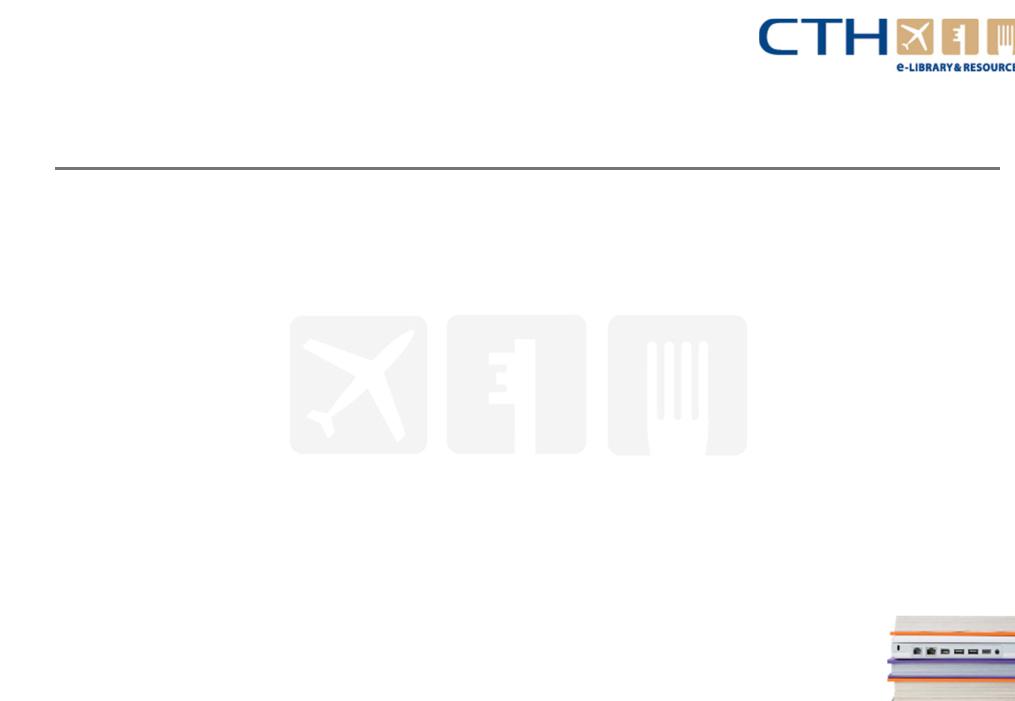
Chapter 4 – Check-out procedures
Other cash transactions
4.1 Petty cash continued…
For security purposes:
●Vouchers are sequentially numbered, which ensures that they can be accounted for.
●Vouchers are signed by the person claiming the petty cash and authorised by a responsible manager, so that transactions can be traced if necessary.
●Cash floats are securely locked away at all times, with restricted access to the keys.
●There should be rules preventing misuse of the system (e.g.. for routine purchases, the cashing of staff cheques or IOUs).
www.cthresources.com |
Page 259 |
|
www.cthawards.com |

Chapter 4 – Check-out procedures
Other cash transactions
4.1 Petty cash continued…
Figure 4.7: Petty cash book
www.cthresources.com |
Page 260 |
|
www.cthawards.com |
